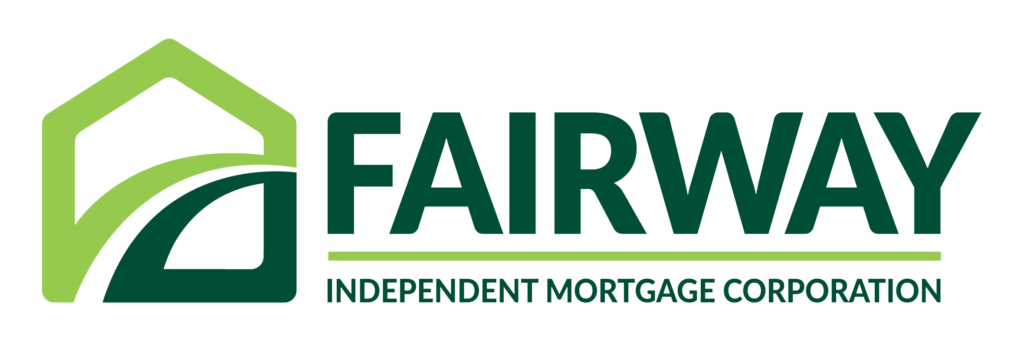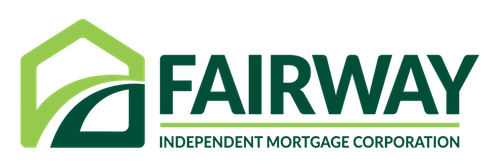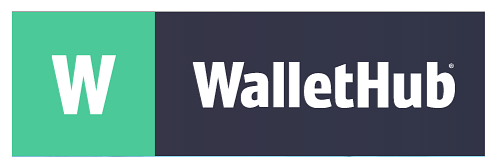Unlock your home’s equity
and open the door to possibilities in retirement.
What is a “HECM” Reverse Mortgage Loan?
Specifically designed for homeowners aged 62+, a reverse mortgage is a home loan that allows borrowers to convert a portion of the equity they have in their home into cash. Home Equity Conversion Mortgages (or HECMs) are by far and away the most common type of reverse mortgage. HECMs are the only reverse mortgages insured by the Federal Housing Administration (FHA), and you can only get one through an FHA-approved lender like Fairway.
Curious what you may qualify for? Use our free reverse mortgage calculator!
Key Benefits:
Increased cash flow.
You can access cash from a portion of your home equity without incurring income tax* (generally, it won’t affect your Social Security and Basic Medicare benefits). You can use the funds how you want.
* This advertisement does not constitute tax advice. Please consult a tax advisor regarding your specific situation.
Flexible repayment feature.
You have the option to repay as much or as little of the loan balance each month as you would like, or you can make no monthly mortgages payments at all. Of course, you must still maintain the home and pay homeowners insurance and property taxes, just like a traditional mortgage.
The FHA guarantees no repayment of the loan is required until the last borrower moves out or passes away. When you move out of your home, you or your estate has up to 12 months to repay the loan balance, which is typically achieved by selling the home.
Non-recourse feature.
The FHA guarantees that if the balance on the loan exceeds the home value at the time the home is sold, neither you nor your heirs will be responsible for paying the deficit (the FHA will pay it). If there are excess proceeds from the sale of your home, you (or your heirs) would receive them.
- You remain on the title and you own the home.
- You can sell your home at any time.
- Line of credit growth feature.
With a HECM reverse mortgage line of credit, the unused portion of the line of credit will grow each month at the same rate as the loan balance. In other words, you will have access to even more funds over time, regardless of home value.
Common Uses of a Reverse Mortgage:
- Refinancing your existing mortgage. If you are carrying mortgage in retirement, refinancing to a reverse mortgage eliminates your obligation to make required monthly mortgage payments. You must maintain the home and pay your homeowners insurance and property taxes.
- Supplement cash flow with a steady stream of funds
- Bridge the Medicare gap from age 62 to 65
- Use as a standby line of credit
- Fund major expenses, such as in-home care or home renovations
- Debt consolidation

DID YOU KNOW? You can also use a reverse mortgage to buy a new home that better fits your needs in retirement. This home financing option is called a HECM for Purchase.
Ways Loan Proceeds Can Be Taken:
- A lump sum payout
- Fixed monthly advances
- Tenure (life of the loan)
- Term (set period of time)
- A line of credit
- A combination of monthly payments and a line of credit
General Eligibility:
The borrower(s) must:
- Be 62 years or older
- Live in the home as his or her primary residence and either own the home outright or have significant equity in the home
- Meet minimum credit and property requirements
- Must receive reverse mortgage counseling from a HUD-approved counseling agency
- Must not be delinquent on any federal debts
Eligible Properties:
- Single family residence
- 2- to 4-unit properties
- Manufactured homes
- Modular homes
- Planned unit developments
- Townhomes
- FHA-approved condominiums
Frequently Asked Questions
How does a HECM Work?
With a Home Equity Conversion Mortgage (a.k.a. reverse mortgage), you borrow against your home equity — the lender pays you an advance on a percentage of your home equity. There are no required monthly principal or interest mortgage payments (you must pay the property charges, like taxes and insurance). The loan typically becomes due and payable when the last surviving borrower permanently moves out of the home or passes away. At loan maturity, the sale of the home will always satisfy the loan. Here's what you need to know about a HECM.
What is the interest rate on a HECM loan?
Reverse mortgage interest rates can vary by lender and whether you select a fixed or variable product. The variable interest rate is composed of two parts: an index and a lender margin (both are stated in the mortgage contract). Fairway uses the weekly average of the Constant Maturity Treasury (CMT) as the index. To find out what the current reverse mortgage interest rates are, please reach out to Fairway retirement mortgage specialist.
Who qualifies for a HECM?
To qualify for a Home Equity Conversion Mortgage (HECM), you must:
- Be 62 or older
- Own your own home (must be an eligible property type) and reside in it as your primary residence
- Own the home outright or have significant equity in the home
- Meet minimal income and credit requirements
- Attend a financial counseling session
What are the pros and cons of a HECM?
The pros of a Home Equity Conversion Mortgage (HECM):
- You can convert a portion of your home’s equity into cash, fixed monthly advances, or a growing line of credit (growth applies to the unused funds).
- You are not obligated to make a monthly mortgage payment — although you can — for as long as you meet the loan terms. Those terms include living in the home as your primary residence and paying the property-related taxes, insurance, and upkeep expenses.
The cons of a HECM:
- The unpaid reverse mortgage loan balance grows over time. This is because interest and fees get tacked on the unpaid loan balance. Note: You do have the option to pay down the loan balance at any time — you can pay as much or as little toward it as you would like.
- You are drawing down on your home equity. Naturally, that likely means your heirs would have less money (or no money at all) coming to them from that particular asset.
For more, visit our blog article The Pros and Cons of HECMs.
Is a HECM a second mortgage?
No. A Home Equity Conversion Mortgage (or HECM, commonly called a reverse mortgage) must be in the first lien position. The good news is the loan proceeds can be used at closing to pay off (refinance) an existing first or second mortgage as long as the lien(s) meets the seasoning guidelines (liens that have been in place longer than 12 months or resulted in less than $500 cash to the borrower. An exception now exists for some HELOCs).
How is a HECM repaid?
When a maturity event occurs (e.g., the home is no longer the primary residence of the at least one borrower or a non-borrowing spouse), the loan becomes due and payable, and the home is typically sold to repay any outstanding loan balance. Because reverse mortgages are non-recourse loans, the sale of the home after loan maturity will always satisfy the loan repayment obligation — neither the borrower nor their heirs will be personally liable for any balance deficiency.

Let’s start a conversation.
If you are interested in the reverse mortgage loan, contact us today. Our experienced team of Reverse Mortgage Planners will help you to understand the HECM product, so you can make an informed decision about whether it is the right financial solution for you.
*Source: https://www.cbsnews.com/news/best-reverse-mortgage-companies-2023/








